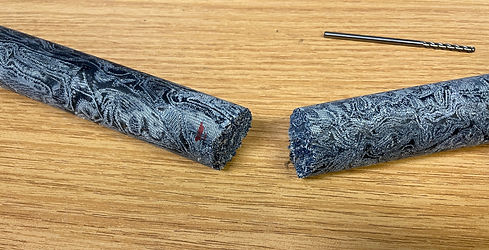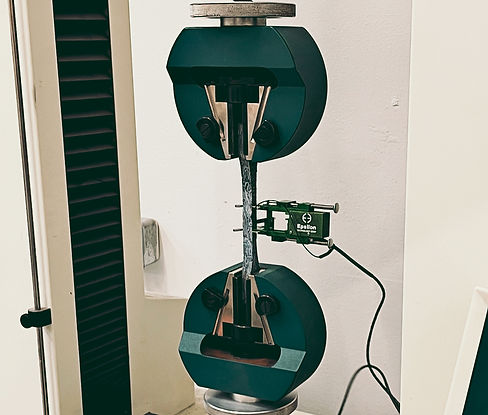top of page
A closer look at
Material Tests
Welcome to Denimolite Material Testing page, where we present the culmination of meticulous assessments and analyses derived from our initial material tests.
Within these tests, we explore the limits and capabilities of materials under different conditions, shedding light on their resilience, structural integrity, and potential areas for improvement. Whether assessing the ability of materials to withstand specific forces, measuring their tensile strength, analyzing their compression thresholds, or evaluating their resistance to fire hazards, our testing procedures are comprehensive and meticulously carried out.
Side point loading Testing
28mm bar section side point loading, test to critical load force across 300mm support distance.

Bending
The side loading test consisted of a 300mm gap between two supports and a force applied in the centre of the bar. The 28mm diameter bar withstood a critical force of 1.6kN (163kg) before snapping.
The test bar shows the location of the snap, fibers inside the bar have sheared.

Innitail Tensile Testing
BS EN ISO 527-1 specifies the general principles for determining the tensile properties of plastics and plastic composites under defined conditions. It provides key data on tensile strength, modulus and elongation of plastics at ambient, elevated or reduced temperatures.

Pulling force
Sample 1 reached a critical tensile force of 2500N
The Youngs modulus results of 2.8GNm-2 & 3.4GNm-2, shows that the
composite behaves similar to PVC plastic.


Innitail compression Testing
ISO 604:2002 This international standard specifies a method for determining the compressive properties of plastics under defined conditions.
25.4mm x 25.4mm x 50.8mm
Max 19000N compressive load
(1.9 tonnes)
Poission's ratio 0.247
the composite behaves similarly to cast iron


max compression load
30mm x 38mm x 48mm
max 50000N
(5 tonnes)
bottom of page